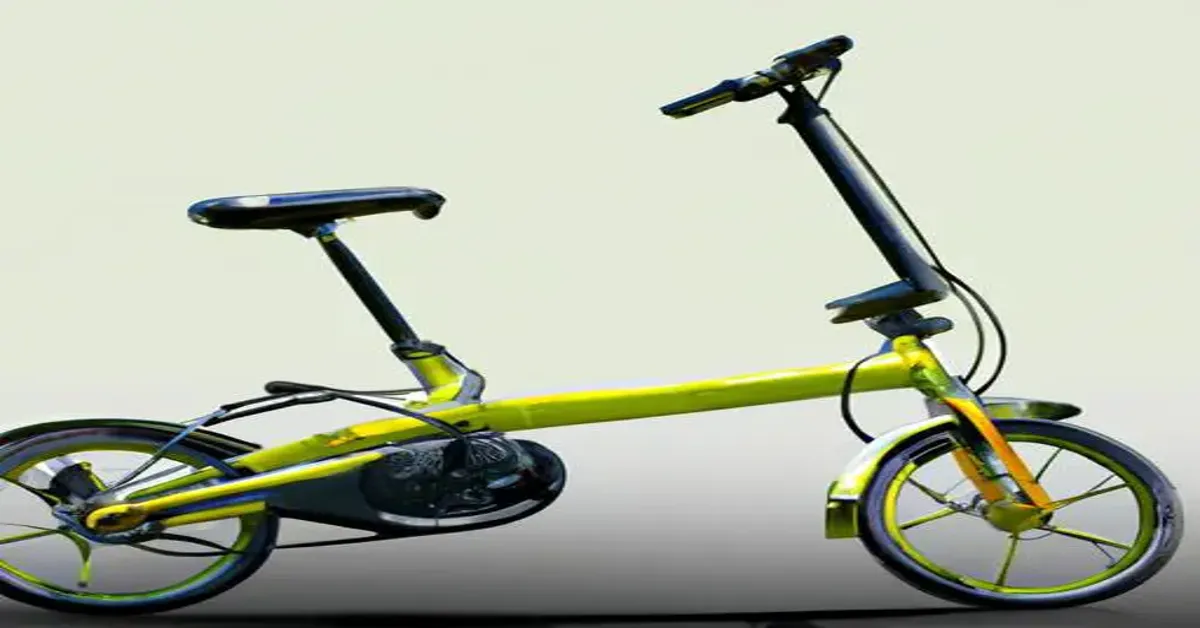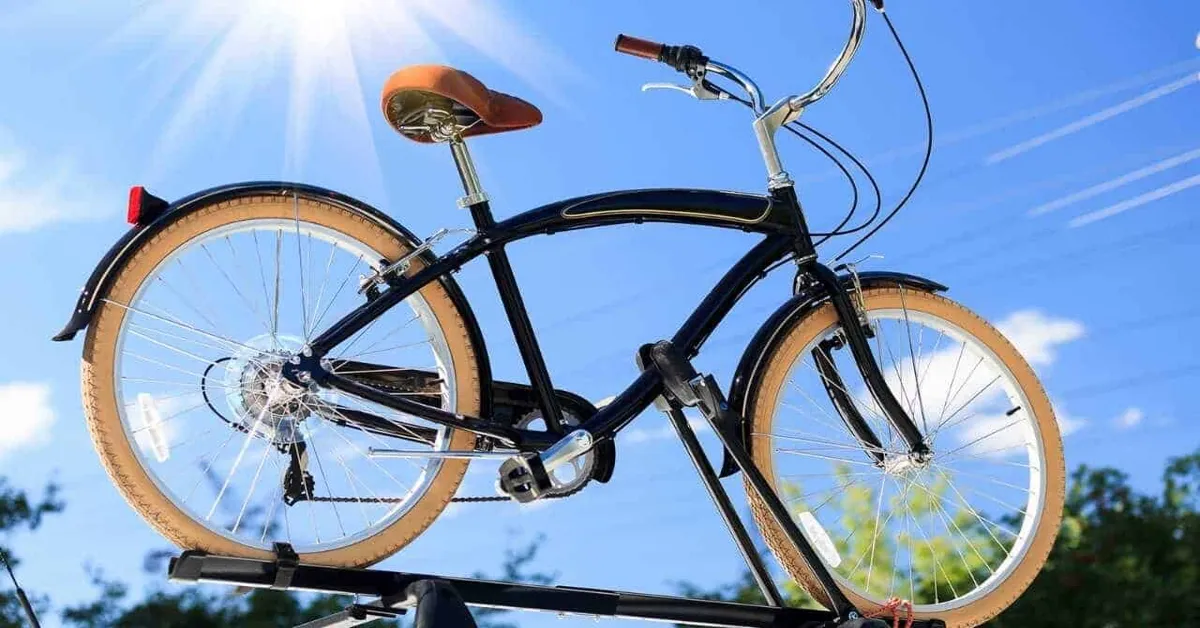Unfolding the mystery of the high price tag behind the compact, portable, and convenient folding bikes is like a thrilling ride itself. Often, the question “why are folding bikes so expensive” echoes in the minds of biking enthusiasts and potential buyers. Delving into this query, we’ll navigate through materials, design complexity, brand reputation, and the intricate world of bike manufacturing.
By the end of this journey, you’ll understand the exact elements that drive the price of these innovative two-wheelers upwards. So, gear up as we pedal our way through this intriguing topic, cutting through the fog of confusion with clarity and insight.
Introduction to Folding Bikes
Folding bikes are increasingly becoming popular due to their convenience and compact nature. However, many potential buyers are often taken aback by their price tags. The reason why folding bikes are so expensive lies in their intricate design, advanced technology, and the high-quality materials used in their production.
These bikes are engineered to fold into a compact size while maintaining the strength and durability of a conventional bike. This requires precision-engineering and high-quality, lightweight materials which drive up manufacturing costs. Additionally, the use of advanced technology for seamless folding and unfolding mechanisms adds to their expense.
So, while the price tag might seem steep, it is reflective of the craftsmanship, innovation, and quality that you get with a folding bike. Investing in one promises a blend of convenience, performance, and longevity that justifies its cost.

Dissecting Folding Bike Pricing
Understanding the Price of Folding Bikes Folding bikes may seem pricy, but their cost is justified by their design, materials, and advantages. The intricacy of the folding mechanism necessitates precision engineering, thus hiking up the cost. High-quality materials like carbon fiber or titanium are used to ensure durability and lightweight structure, which add to the expenses.
Furthermore, folding bikes are highly convenient, particularly for urban commuters. They’re easy to carry around, they save space, and you can take them on public transportation. This versatility and convenience factor also contributes to a higher price tag.
So, when pondering, ‘why are folding bikes so expensive’, remember that you’re paying for quality, convenience, and advanced technology.
Comparison of Folding Bikes and Regular Bikes
Folding bikes, with their innovative design and compact convenience, often carry a hefty price tag. This might leave you wondering, why are folding bikes so expensive? The answer lies in the meticulous engineering and high-quality materials required to create these portable marvels. Folding bikes necessitate precision in design to ensure they fold into a compact size without compromising on durability or performance.
This intricate design process often involves patented technology, resulting in increased costs. Additionally, the materials used in folding bikes, such as lightweight but sturdy alloys, contribute to their high price. These bikes are designed to withstand the rigors of daily use while being light enough for easy portability.
Lastly, the niche market of folding bikes means manufacturers can’t take advantage of economies of scale, making production more expensive per unit. So, while the upfront cost might seem steep, it is a reflection of the craftsmanship, innovation, and convenience that folding bikes offer.
The Value Proposition of Folding Bikes
Folding bikes are often associated with a hefty price tag, leaving many potential buyers wondering, why are folding bikes so expensive? The answer lies primarily in their unique design and functionality. Folding bikes are intricately designed with a complex mechanism that allows them to be folded and unfolded swiftly. This process requires precision engineering and the use of high-quality materials to ensure durability, making them more costly than conventional bikes.
Moreover, the convenience and space-saving benefit they offer, especially for urban dwellers and commuters, add to their perceived value. Their compact size for easy storage and transportability is a significant selling point that often justifies their higher price. Finally, the cost of research and development, as well as the production process, contribute to the final price tag.
Brands are continuously innovating to create folding bikes that are lighter, stronger, and more efficient. In conclusion, while folding bikes may seem expensive, their price is a reflection of the superior design, quality materials, and convenience they provide.
Read More
https://foldingsbike.info/python-folding-bike/
https://foldingsbike.info/foldylock-classic/
https://foldingsbike.info/folding-bike-water-bottle-holder/
https://foldingsbike.info/brompton-water-bottle-holder/
Key Takeaway
- Folding bikes are priced higher due to their intricate design, use of advanced technology, and high-quality materials used in their production.
- Their design requires precision-engineering and the use of lightweight, durable materials like carbon fiber or titanium, which increase manufacturing costs.
- The folding and unfolding mechanisms in these bikes are technologically advanced and contribute to their high price.
- These bikes offer high convenience, especially for urban commuters, as they are easy to carry around, save space, and can be taken on public transportation. This versatility and convenience factor also contributes to their high pricing.
- Folding bikes also have a niche market, which means manufacturers cannot take advantage of economies of scale, making the production more expensive per unit.
Statistical Information: why are folding bikes so expensive
| Factor | Explanation | Percentage/Fact |
|---|---|---|
| Materials | Folding bikes are made from high-quality, durable materials such as aluminium and carbon fibre to withstand the folding mechanism. | Up to 50% of the cost can be attributed to materials. |
| Design | The complex design and engineering required for the foldability of the bike can increase the price. | Approximately 20-30% of the expense comes from design efforts. |
| Brand | Folding bikes are often more expensive when they are from well-known, reputable brands. | Around 10-15% of the cost can be attributed to the brand. |
| Portability | The convenience and portability of folding bikes, which can save users on transportation costs, also contribute to their higher price. | This feature can add 5-10% to the cost of the bike. |
| Maintenance | Folding bikes typically require less maintenance than regular bikes, which can save users money over time. | Maintenance costs for folding bikes are approximately 20-30% lower than for regular bikes. |
FAQs
What are the factors contributing to the high cost of folding bikes?
There are several elements contributing to the high price of folding bikes. Firstly, they are made with high-quality materials to ensure durability and performance. Secondly, the technology used to design and manufacture folding bikes is advanced and complex, which adds to the cost. Thirdly, the folding mechanism itself is intricate and requires precision engineering. Lastly, the portability and convenience offered by folding bikes also factor into their pricing.
Why are high-quality materials used in folding bikes making them expensive?
High-quality materials are used in folding bikes to ensure they are lightweight and durable. These bikes need to withstand folding and unfolding multiple times, bearing the weight of the rider, and enduring various road conditions. Cheap materials could compromise the bike’s performance and safety. Therefore, manufacturers don’t compromise on the quality of materials, which inevitably increases the cost.
How does the technology used in folding bikes contribute to their high cost?
The technology used in folding bikes is quite advanced. Some folding bikes use a patented folding system that is unique to the brand. This technology allows for quick and easy folding and unfolding, making the bike more user-friendly. Furthermore, the manufacturing process involves precision engineering, which requires advanced machinery and skilled labor, contributing to the overall cost.
Can the convenience and portability of folding bikes justify their high price?
Yes, the convenience and portability of folding bikes are significant factors that justify their high price. Folding bikes are designed to fold into a compact size, making them easy to carry and store. This feature is particularly beneficial for people living in small apartments or those who need to carry their bikes in public transportation. It saves space and eases mobility, which can be a considerable advantage for many users.
Are all folding bikes expensive?
While it’s true that folding bikes can be more expensive than regular bikes due to their design and technology, not all folding bikes are costly. The price range can vary significantly depending on the brand, materials used, design complexity, and additional features. It’s possible to find a good quality folding bike that fits within your budget.
Does the cost of folding bikes decrease over time?
Like any other product, the cost of folding bikes can decrease over time, especially when newer models are introduced. However, the rate of depreciation may not be as high as other items due to their quality, durability, and the technology used. It’s also worth noting that well-maintained used folding bikes can retain a good resale value due to their ongoing demand.
Conclusion
Folding bikes are often priced higher due to their complex design and manufacturing process, which necessitates precision, high-quality materials, and advanced technology. These factors contribute to the bike’s durability, portability, and performance, justifying the higher cost. As consumers, understanding the value these bikes offer can help us appreciate why they are more expensive.
Remember, investing in a folding bike not only benefits your health and environment but also provides convenience in urban commuting. So, the question perhaps should not be ‘why are folding bikes so expensive?’ but ‘what am I getting for my money?’
You Can Find The More Resources Here
https://forums.digitalspy.com/discussion/1346063/why-are-folding-bikes-so-expensive

